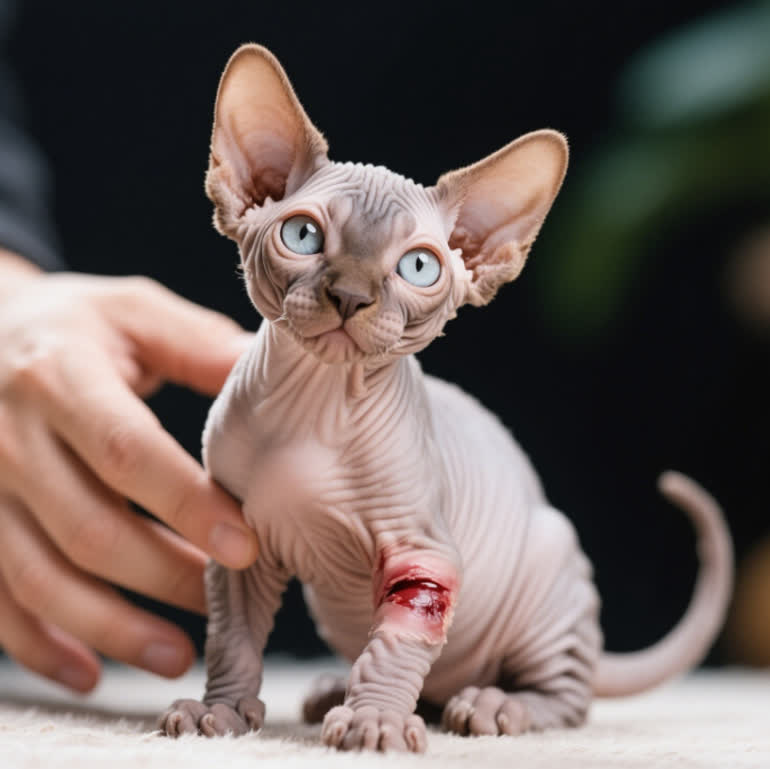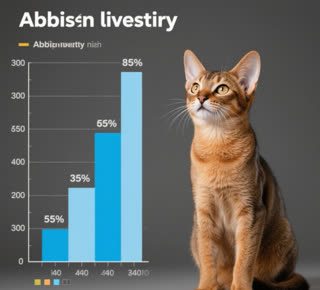When faced with a bleeding injury in your Devon Rex kitten, the first priority is to remain calm. Kittens can sense anxiety, and a stressed cat may struggle or worsen the injury. Gently restrain your kitten using a soft towel or blanket to minimize movement. If the bleeding is severe (e.g., spurting blood or pooling on the floor), contact your veterinarian immediately while preparing to transport your kitten. For minor cuts or scrapes, follow these steps:
Control Bleeding: Apply gentle, steady pressure to the wound using a clean cloth or sterile gauze. Maintain pressure for 5-10 minutes until bleeding slows. Avoid using cotton balls, as fibers may stick to the wound.
Elevate the Limb: If the injury is on a leg, elevate it above the heart to reduce blood flow.
Devon Rex kittens have sensitive skin, so it’s crucial to clean the wound carefully to prevent infection.
Trim Fur: Use blunt-tipped scissors to trim hair around the wound, ensuring visibility and preventing contamination.
Wash with Saline: Gently rinse the wound with sterile saline solution (available at pet stores) or warm water. Avoid hydrogen peroxide or alcohol, as these can irritate the skin.
Disinfect: Apply a pet-safe antiseptic ointment (e.g., Vetericyn) to the wound. Avoid human medications unless recommended by your vet.
After cleaning, protect the wound from further damage.
Bandage Properly: Use non-adhesive gauze and self-adhesive veterinary wrap to secure the area. Ensure the bandage is snug but not tight enough to restrict circulation.
Eliminate Licking: Devon Rex kittens are prone to grooming, so place an Elizabethan collar (cone) to prevent licking or scratching.
Keep a close eye on the wound over the next few days. Signs of infection include:
Redness or swelling around the wound
Pus or discharge
Foul odor
Lethargy or loss of appetite
While minor injuries can often be managed at home, certain situations require professional attention:
Deep wounds that expose muscle or bone
Bleeding that doesn’t stop after 10 minutes of pressure
Injuries to the face, eyes, or abdomen
Signs of shock (pale gums, rapid breathing, weakness)
Devon Rex kittens are agile climbers and explorers. To minimize risks:
Cat-Proof Your Home: Secure loose wires, toxic plants, and small objects.
Supervise Play: Provide safe toys and discourage rough play.
Regular Checkups: Schedule routine vet visits to address any health concerns early.
Skin Sensitivity: Their thin, curly coats offer less protection, so wounds may heal more slowly. Use hypoallergenic products and avoid harsh chemicals.
Nutrition: Ensure a balanced diet rich in omega-3 fatty acids to support skin health and wound healing.
Knowing how to respond to a bleeding injury in your five-month-old Devon Rex kitten can make a significant difference in their recovery. By staying calm, following these steps, and seeking veterinary care when needed, you can ensure your kitten receives the best possible care. Remember, prevention is key—regular checkups and a safe environment will help keep your playful Devon Rex healthy and happy.










